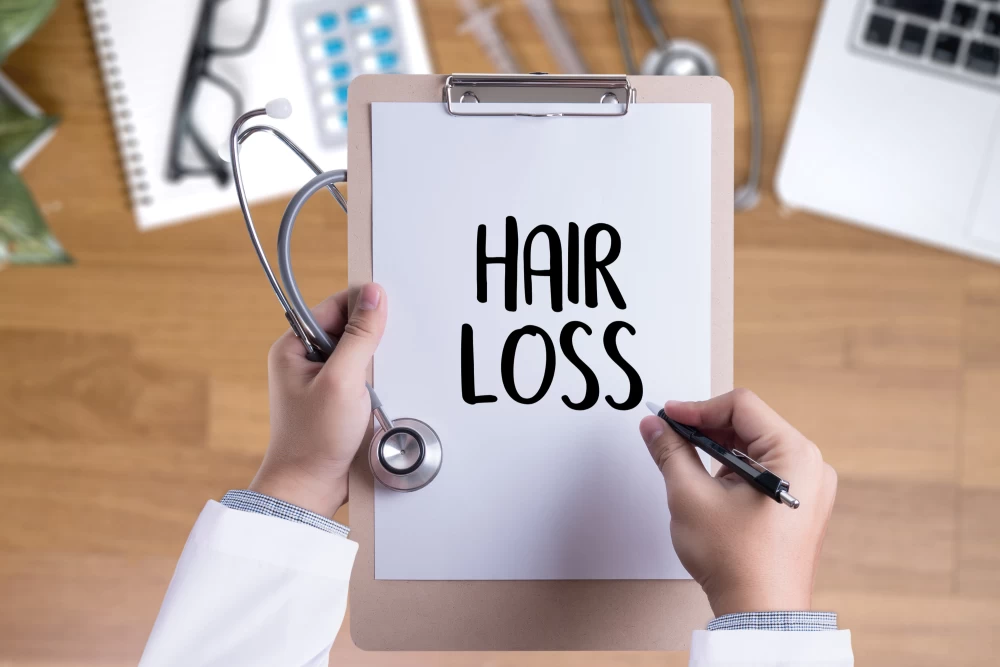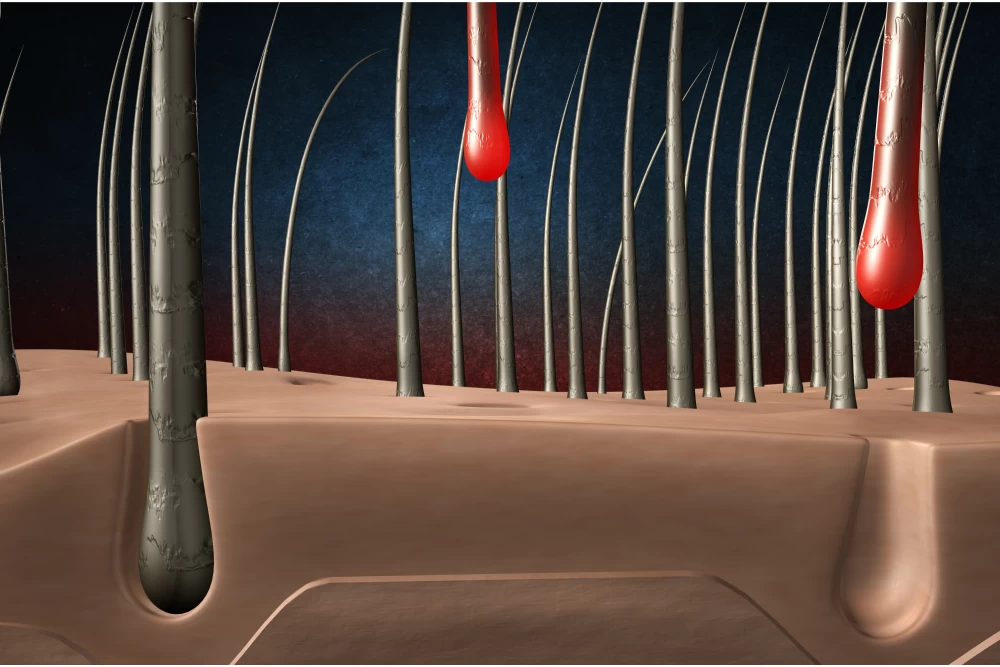
- 1st May 2023
Table of Contents
How does Intermittent Fasting work?
Popular eating patterns include fasting for some time and then eating normally again. It has been linked to a variety of positive health outcomes, such as lowered inflammation, better blood sugar regulation, and reduced weight. However, the potential impact of intermittent fasting on hair health is less well-known. Human growth hormone (HGH), which is essential for hair growth and maintenance, is increased by intermittent fasting. Human growth hormone encourages the development of new hair follicles and aids in the upkeep of healthy hair by boosting collagen production in the scalp. The end result is hair that is thicker, stronger, and less likely to break. Intermittent fasting has additional benefits, including enhanced scalp circulation. The hair follicles receive more oxygen and nutrients thanks to the boost in blood flow. Although intermittent fasting has been linked to improved hair quality and growth, it should not be used in place of a healthy diet or professional medical care if you are experiencing hair problems.
The Positive Effects of IF on Hair
Many people today practise intermittent fasting (IF) as a way to enhance their health and wellness. Improved hair health is just one of the many advantages of adopting an IF lifestyle. Intermittent fasting (IF) is a method for combating hair loss and thinning by limiting caloric intake to a short time period. In addition, autophagy, a process by which cells recycle their damaged components, is triggered during fasting, improving dietary nutrient absorption. This improves your body's ability to take in the proteins, vitamins, and minerals necessary for healthy hair growth, such as biotin and iron, when you do eat. Finally, inflammation in the body is decreased by intermittent fasting. Hair issues like dandruff, dry scalp, and slow growth have all been linked to chronic inflammation. A healthier scalp and stronger hair can be the result of incorporating IF practises.
Possible Ill Effects on Hair From IF

Although intermittent fasting is often recommended as a means of losing weight, it has been linked to a decline in hair quality and health. It's possible that prolonged fasting deprives the body of nutrients essential for hair growth. Stress and hormonal imbalances, which can be brought on by intermittent fasting, have also been linked to hair thinning and loss. Intermittent fasting may also cause dehydration, which is bad for hair health. Because of the dehydration that occurs during fasting, your hair and scalp may become dry and brittle. The hair may become brittle or split as a result. Finally, some people who follow IF tend to eat low-calorie diets that are deficient in nutrients like iron, zinc, biotin, vitamin D, and others that are necessary for healthy hair growth. Lacking these vitamins may have far-reaching effects on one's health and wellbeing, not just on their hair.
How to Eat Well While Fasting
Maintaining a healthy and well-balanced diet during the eating window of an Intermittent Fasting (IF) diet is essential. Including proteins, carbohydrates, healthy fats, and vitamins and minerals from all food groups is a must. Lean meats like chicken or fish, legumes like lentils or beans, tofu or tempeh for vegetarians/vegans, and eggs are all excellent sources of protein. Select high-fiber fruits and vegetables and whole grains like brown rice and quinoa when looking for carbohydrates. When following an IF eating plan, it's crucial to pay attention to the kinds of fats you consume. Avocados, nuts and seeds like chia or flaxseed, olive oil, etc. are all good places to get healthy fats. Avoiding fried foods is recommended because the unhealthy fats they contain can contribute to systemic inflammation. Maintaining healthy hair while on an IF diet may also be aided by consuming enough biotin (found in eggs), vitamin A (found in sweet potatoes), vitamin C (found in citrus fruits), and omega-3 fatty acids (found in fatty fish). An optimally nourishing diet is essential for optimal health and hair growth, and it will help you stay fueled during fasts.
What to Take for Vitamins and IF
Although intermittent fasting is primarily used for weight loss, it may also improve hair quality. Stem cell production in hair follicles has been shown to increase during intermittent fasting, which may improve hair growth and quality. Certain supplements can be helpful for encouraging healthy hair growth during intermittent fasting. Biotin is a supplement worth considering because of its beneficial effects on hair, skin, and nails. Hair strands' protein structure is strengthened by biotin, making it more resistant to breakage. Collagen is another useful supplement because it contains amino acids that the body needs to produce healthy, strong hair. Make sure you're getting enough of everything you need during your eating windows when using IF in addition to these supplements. Maintaining healthy hair growth while following an intermittent fasting schedule is possible by eating a balanced diet rich in vitamins and minerals like iron, zinc, vitamin D3, and omega-3 fatty acids.

Treatments for Female Pattern Baldness
People who practise intermittent fasting (IF) often worry about hair thinning as a side effect of their diet. However, there are a number of treatments available that can help stop or slow hair thinning. Consuming sufficient protein during the feeding window is one of the most effective treatments for this condition. Getting enough protein is crucial for healthy hair growth and repair. Incorporating vitamin and mineral-rich foods like iron, vitamin D, and zinc into your diet may also help. These nutrients are great for your hair because they encourage growth and protect it from breaking. In addition, drinking water regularly throughout the day can help support healthy hair. Hair loss due to intermittent fasting can be mitigated or prevented by including these remedies in your diet. However, before making any major changes to your diet or lifestyle, it is important to speak with a healthcare professional.














